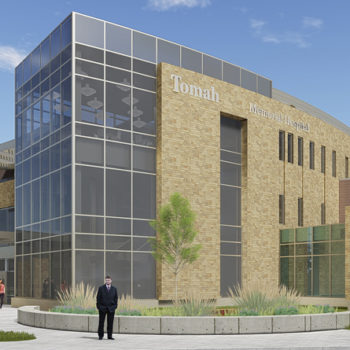
Q&A: The Value of Cost Estimating
- Posted by Gaby
- On March 7, 2017
- 0 Comments
- AIA, cost estimating, HOK, LEED, Paul Whitson, University of Missouri-Kansas City
By Jessie Fetterling
Cost estimating can make or break a project — and ensures that no surprises will arise come bid day. Continuing to cost estimate throughout the construction process can further guarantee that projects stay on budget and that facility owners are given timely information about system life cycles.
Healthcare Construction + Operations News recently spoke with Paul Whitson, AIA, LEED GA, senior vice president and regional health care leader in HOK’s St. Louis office to gain some insight on cost-estimating during the design and construction of major projects.
Q: How often do you use cost estimating while designing a project?

Whitson
Whitson: Almost always. It’s essential in understanding how many square feet are needed for a project and how much it will cost. On a project for the University of Colorado in Colorado Springs, we are using it in the early programming stages for the school’s Sports Medicine and Performance Center. We have teamed with a construction manager who will use cost estimating to accurately identify constructability issues and deliver the best outcomes for the school.
Q: How does the cost estimating process differ between specific project phases?
Whitson: Ideally, it should reduce costs from concept to the construction document phase. At the concept phase, more allowances are made in estimating for the unknown. But as project planning advances, refinements can be made as site issues and layout become better known. There are generally two big changes in project phases: when you move from unit-costing to systems-costing and when unforeseen contingency costs become clearer. In each case, as the unknown aspects peel away, the costs should go down. Essentially, the more that is known, the better for accurate cost estimating.
Q: How can cost estimating help facilities save money and stay within budget?
Whitson: [Cost estimating] can help in two ways. First, it is a great benefit in setting benchmarks to make the best use of capital on the project and keep it within budget. But it also provides valuable information for that next project, where it can be used to predict future costs for similar projects or an added phase. We use technology like Revit and BIM to model systems early in the project. The model gives team members a better understanding of how all facets of the project fit together and overcomes conflicts to avoid having to make costly changes later on in the project.
Q: How can cost estimating help in the maintenance/operations of the building once a construction project is completed?
Whitson: That’s part of the system costs, and in general proceeds with the understanding of the first cost versus the operating costs over the life of the project. There may be cheaper HVAC systems, but their cost must be viewed over the long term. A more expensive system can provide greater value in efficiency and energy conservation over the life of the system.


0 Comments